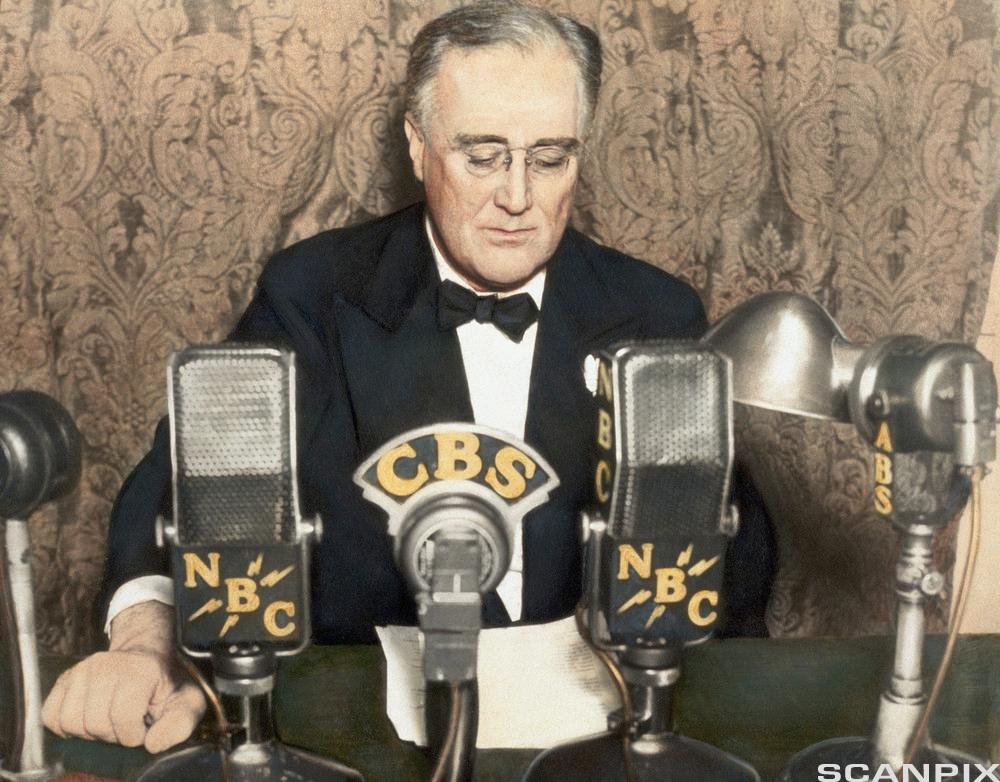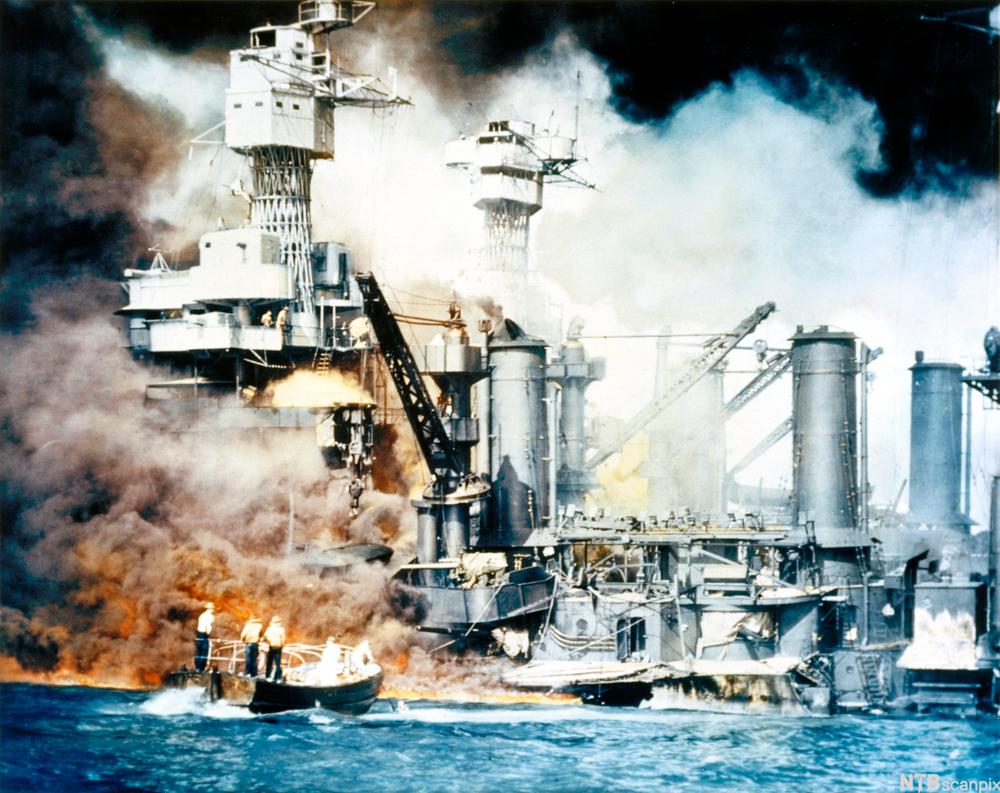The Four Freedoms by Franklin D. Roosevelt

World War II began in Europe in 1939. President Roosevelt believed the United States should ally with Europe's democracies against Germany, but Congress was reluctant to allow the country to be dragged into 'a European war'. Some even believed that a Europe united under Germany would be a convenient trading partner for the United States.
Roosevelt put considerable effort into persuading Congress to provide weapons for countries fighting against Germany, Japan, Italy, and their allies. It was clear that no European country could afford the cost of these weapons, so the president proposed a deal where the United States lent them weapons and other necessary aid. The Lend-Lease Act was passed in March 1941. Over the course of the war, the United States provided allied forces with aid valued at over $49 billion.
In December 1941, Japan attacked Pearl Harbor. The United States no longer had a choice – war had to be declared.
The Four Freedoms speech was held on 6 January, 1941, in the president's annual State of the Union address.
. . .
There is much loose talk of our immunity from immediate and direct invasion from across the seas. Obviously, as long as the British Navy retains its power, no such danger exists. Even if there were no British Navy, it is not probable that any enemy would be stupid enough to attack us by landing troops in the United States from across thousands of miles of ocean, until it had acquired strategic bases from which to operate.
But we learn much from the lessons of the past years in Europe-particularly the lesson of Norway, whose essential seaports were captured by treachery and surprise built up over a series of years.
. . .
I also ask this Congress for authority and for funds sufficient to manufacture additional munitions and war supplies of many kinds, to be turned over to those nations which are now in actual war with aggressor nations.
Our most useful and immediate role is to act as an arsenal for them as well as for ourselves. They do not need man power, but they do need billions of dollars worth of the weapons of defense.
The time is near when they will not be able to pay for them all in ready cash. We cannot, and we will not, tell them that they must surrender, merely because of present inability to pay for the weapons which we know they must have.
. . .
For what we send abroad, we shall be repaid within a reasonable time following the close of hostilities, in similar materials, or, at our option, in other goods of many kinds, which they can produce and which we need.
Let us say to the democracies: "We Americans are vitally concerned in your defense of freedom. We are putting forth our energies, our resources and our organizing powers to give you the strength to regain and maintain a free world. We shall send you, in ever-increasing numbers, ships, planes, tanks, guns. This is our purpose and our pledge."
. . .
In the future days, which we seek to make secure, we look forward to a world founded upon four essential human freedoms.
The first is freedom of speech and expression - everywhere in the world.
The second is freedom of every person to worship God in his own way everywhere in the world.
The third is freedom from want - which, translated into world terms, means economic understandings which will secure to every nation a healthy peacetime life for its inhabitants - everywhere in the world.
The fourth is freedom from fear - which, translated into world terms, means a world-wide reduction of armaments to such a point and in such a thorough fashion that no nation will be in a position to commit an act of physical aggression against any neighbor - anywhere in the world.
That is no vision of a distant millennium. It is a definite basis for a kind of world attainable in our own time and generation. That kind of world is the very antithesis of the so-called new order of tyranny which the dictators seek to create with the crash of a bomb.
To that new order we oppose the greater conception - the moral order. A good society is able to face schemes of world domination and foreign revolutions alike without fear.
Since the beginning of our American history, we have been engaged in change - in a perpetual peaceful revolution - a revolution which goes on steadily, quietly adjusting itself to changing conditions - without the concentration camp or the quick-lime in the ditch. The world order which we seek is the cooperation of free countries, working together in a friendly, civilized society.
This nation has placed its destiny in the hands and heads and hearts of its millions of free men and women; and its faith in freedom under the guidance of God. Freedom means the supremacy of human rights everywhere. Our support goes to those who struggle to gain those rights or keep them. Our strength is our unity of purpose. To that high concept there can be no end save victory.

Write:
Write a rhetorical analysis of the excerpt from President Roosevelt's speech. Pay special attention to kairos.
In 'related content' at the bottom of the page you will find a link to the article Rhetorical Analysis.
Research:
Work in pairs. Choose one of the tasks. Share your findings with two other pairs.
How important was the Lend-Lease Act in securing an allied victory in World War II?
Japan must have understood that attacking Pearl Harbor would leave the United States with no other option than to declare war. So why did Japan attack?
What was the Manhattan Project. Why was it important for the outcome of the war and for the United States' position in the world after the war?
NATO was established after World War II. What was the United State's role in establishing NATO? What is the purpose of NATO?
Guoskevaš sisdoallu
How do you get what you want by just using words? And how are you able to see that people are trying to persuade you into doing something?